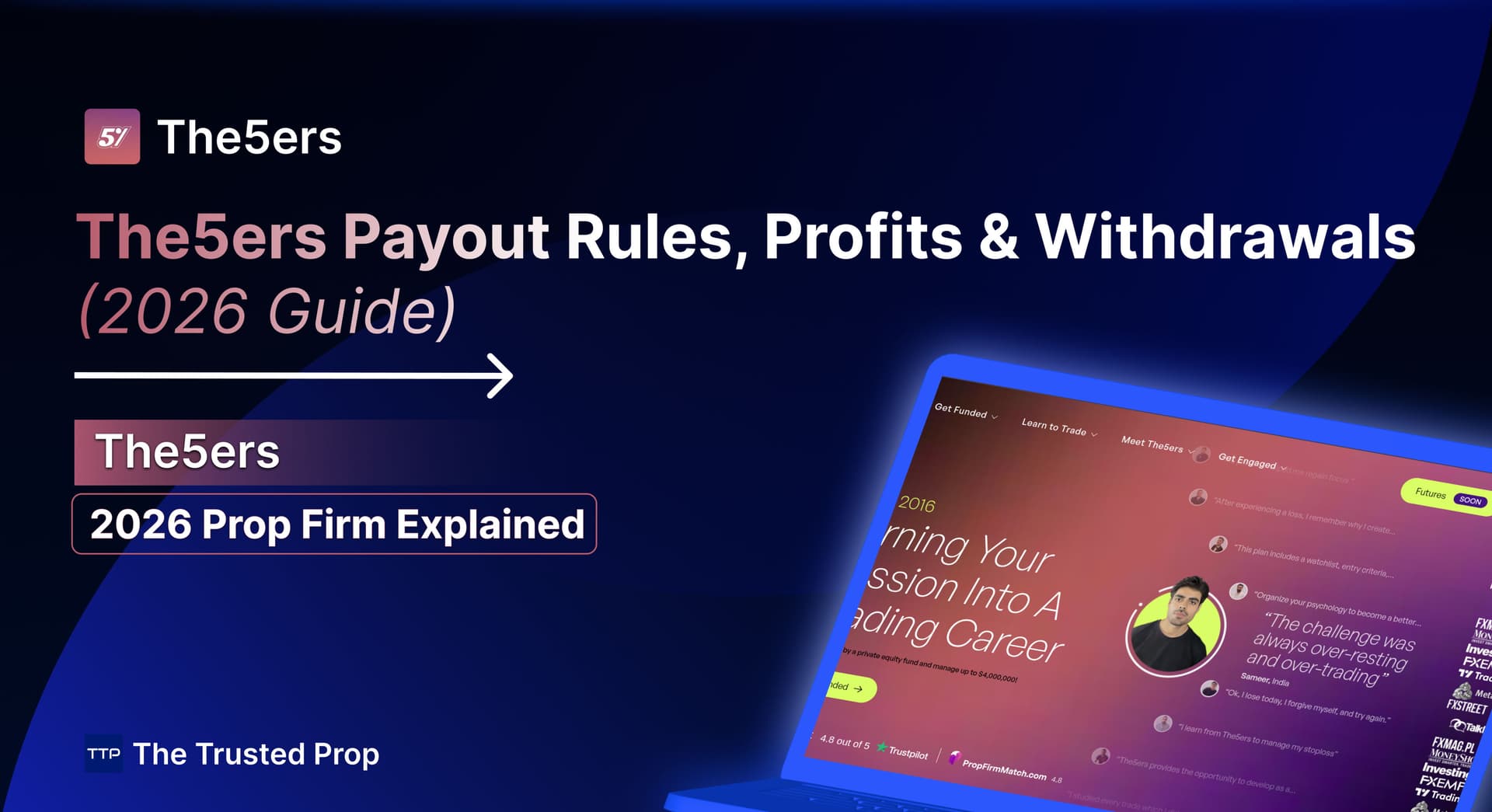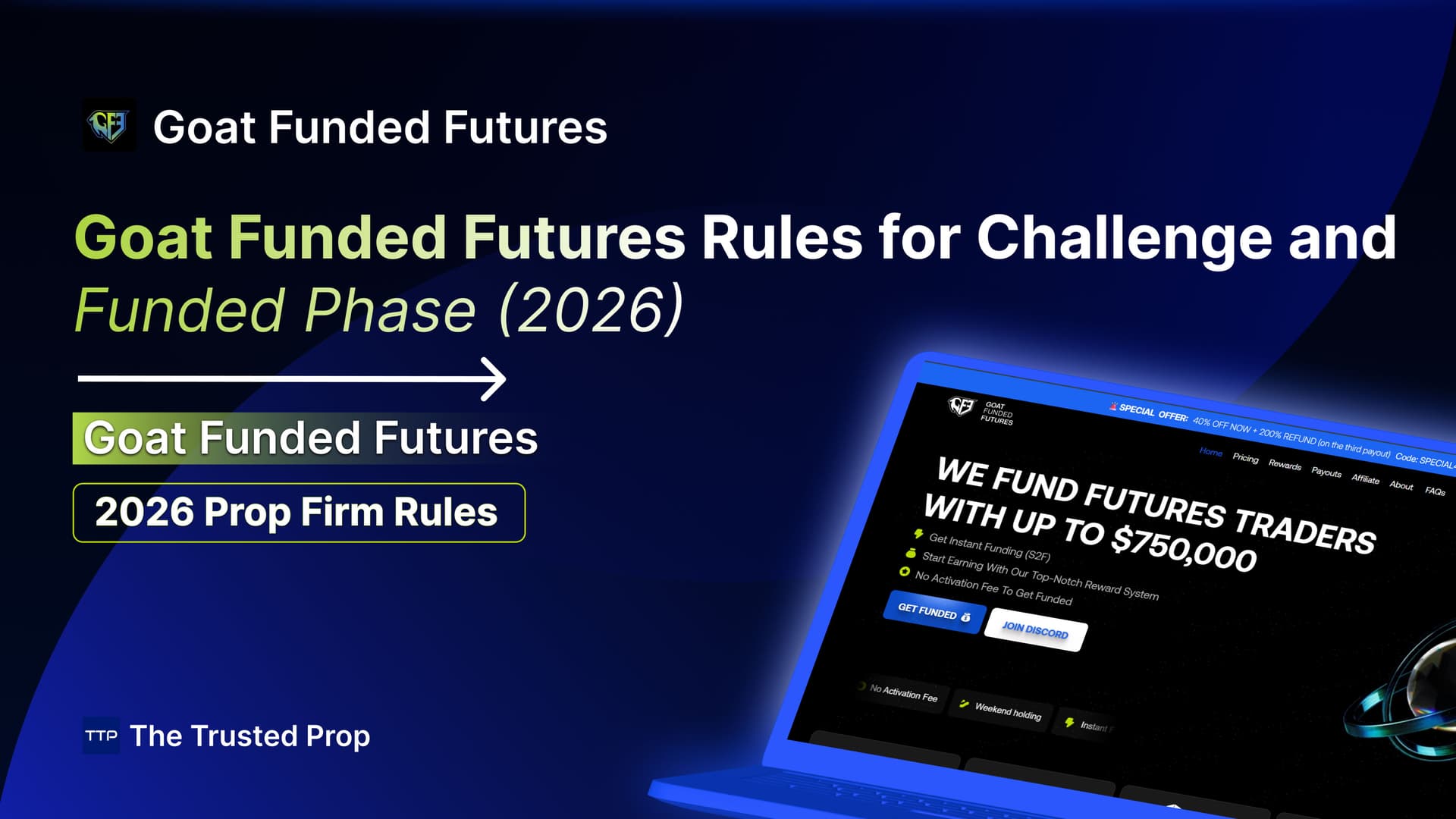Why Most Prop Firm Traders Fail?

Why Most Prop Firm Traders Fail?
3/4/2025
There are over 100,000 traders who trade with prop firms, especially new traders who do not have access to substantial capital and they get frustrated because they experience repeated failures while also losing their little capital. There are various factors on why most traders fail in prop firms; some of the most common mistakes are no discipline, weak psychology, lack of risk management, over-leveraging, a well-developed trading setup or strategy, gambling activities, and so on. In this article, we understand the common mistakes and how to fix these mistakes and hone our trading performance.
Lack of Discipline
Discipline is the most crucial element in trading. Most of the traders fail because of their lack of discipline. Sometimes, they enter impulsive trades, overtrade or exit from the trade too soon because they can’t handle their emotions and the right strategies. This approach leads them to frequent losses.
How to Fix It: Make a well-planned, disciplined, and stick with your right trading plan. Traders need plans for when to start and stop trading, establish set risk-reward ratios, and keep a trading journal to monitor their choices. Always ignore revenge trading and develop a professional trading approach that can achieve more favorable long-term results.
Lack of risk management
One of the most common reasons for prop firm traders is poor risk management. Many traders tend to over-leverage their position, overlook stop-loss strategies, or avoid adhering to proper risk-reward ratios. Prop firms have strict drawdown limits, and poor risk management can lead to rapid disqualification.
How to Fix It: Traders should aim to limit their risk to 1-2% per trade, maintain a consistent risk-reward ratio (1:3), and use trailing stops to protect profits. By practicing disciplined risk management, traders can enhance their chances of achieving long-term success and avoid being disqualified early on.
Over-Leveraging
Most new traders misuse the leverage to think that it will make their profit too big, but while doing this, they forget about leverage. While it does increase potential returns, it also leads to losses. Most of the prop firms offer maximum leverage, but new traders misuse it; sometimes, they lead to account blowouts.
How to Fix It: To avoid over-leverage issues, traders can't take more than 1-2% of the account in a one-time trade. You can use leverage very carefully and set loss levels, and ignore excessive position sizes. First, try to trade on lower leverage until you gain more experience to ensure longevity in the market.
Weak Psychology
Don’t use your unstable emotions, such as fear or greed; these kinds of emotions lead to poor decision-making. Sometimes, traders enter into trade to prevent their and/or show their greed, and this leads them into high-risk traders. Trading is a mental game, so make your strategy because psychological pressure can cause traders to make wrong decisions and doubt their strategies.
How to Fix It: Traders have to work on their emotional control by setting clear rules on profit and loss. You have to build your mental resilience and do some meditation and mindfulness techniques to improve emotional stability. In addition, you can learn from your failure, check every point where you failed, stay focused, and improve your trading skills.
Lack of a Good Trading Setup or Strategy
If traders don’t have a solid strategy, it leads to failure. Many inexperienced traders base their strategies on random market moves and transform their strategies, which leads to inconsistent performance. Traders never understand their strategies if there is a lack of Backtesting and forward testing results.
How to Fix It: Traders must have a well-planned strategy before trading with any prop firm. Don’t change and make your strategies based on any random news. Trading on a demo account and Backtesting historical data can help in making solid strategies. Following a strategy and fine-tuning based on data-driven choices will provide improved results in the long run.
Gambling Activities in the Forex Market
Most forex traders gamble with their money. Rather than using a systematic approach, they make haphazard trades, depend on luck, and expect huge profits. This is a recipe for disaster and will cause them to fail in the long run.
How to fix it: You must treat trading as business, not chance. Each trade must have an underlying reason to make it based on analysis. Every trade must have risk management at its core. Cultivating patience and resisting impulses can enable traders to transition away from gambling-type behavior and develop a disciplined, professional approach to trading.
Conclusion
Most prop firm traders fail because of over-leveraging, poor discipline, poor psychology, poor strategy, and gambling tendencies. Nevertheless, by adhering to correct risk management, following a well-structured trading plan, building psychological strength, and fine-tuning their strategy, traders can succeed. Prop firm trading demands patience, discipline, and ongoing learning. Those who are concerned with long-term development and not short-term profits will have a better opportunity to survive in the competitive forex trading environment.
You may also like
The5ers Payout Rules, Profits & Withdrawals (2026 Guide)

Goat Funded Trader Instant Goat Account Explained (2026)
.jpg&w=1920&q=75)
Goat Funded Futures Rules for Challenge and Funded Phase (2026)

My Funded Futures Flex Challenge Explained (2026 Guide)

Moneta Funded Detailed Review 2026: Our Honest Verdict

Evercrest Funding Detailed Review 2026: Our Honest Verdict

Breakout Prop Detailed Review 2026: Our Honest Verdict

No FAQs are available for this topic yet.






















